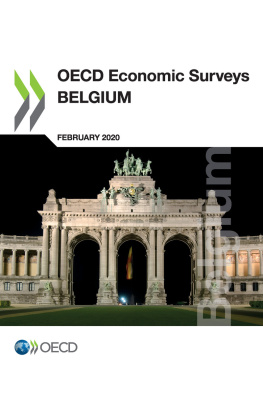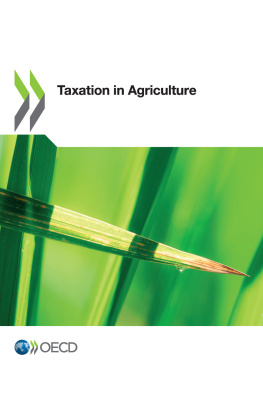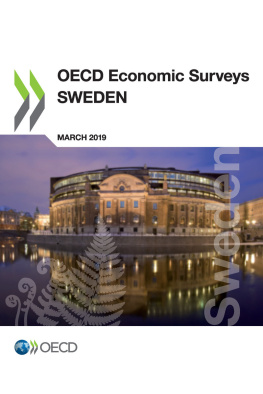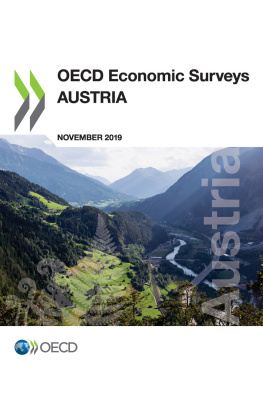OECD - OECD Economic Surveys: Belgium 2020
Here you can read online OECD - OECD Economic Surveys: Belgium 2020 full text of the book (entire story) in english for free. Download pdf and epub, get meaning, cover and reviews about this ebook. year: 2020, publisher: OECD Publishing, genre: Politics. Description of the work, (preface) as well as reviews are available. Best literature library LitArk.com created for fans of good reading and offers a wide selection of genres:
Romance novel
Science fiction
Adventure
Detective
Science
History
Home and family
Prose
Art
Politics
Computer
Non-fiction
Religion
Business
Children
Humor
Choose a favorite category and find really read worthwhile books. Enjoy immersion in the world of imagination, feel the emotions of the characters or learn something new for yourself, make an fascinating discovery.
OECD Economic Surveys: Belgium 2020: summary, description and annotation
We offer to read an annotation, description, summary or preface (depends on what the author of the book "OECD Economic Surveys: Belgium 2020" wrote himself). If you haven't found the necessary information about the book — write in the comments, we will try to find it.
OECD: author's other books
Who wrote OECD Economic Surveys: Belgium 2020? Find out the surname, the name of the author of the book and a list of all author's works by series.
OECD Economic Surveys: Belgium 2020 — read online for free the complete book (whole text) full work
Below is the text of the book, divided by pages. System saving the place of the last page read, allows you to conveniently read the book "OECD Economic Surveys: Belgium 2020" online for free, without having to search again every time where you left off. Put a bookmark, and you can go to the page where you finished reading at any time.
Font size:
Interval:
Bookmark:

OECD (2020), OECD Economic Surveys: Belgium 2020 , OECD Publishing, Paris, https://doi.org/10.1787/1327040c-en .
This Survey is published on the responsibility of the Economic and Development Review Committee of the OECD, which is charged with the examination of the economic situation of member countries.
The economic situation and policies of Belgium were reviewed by the Committee on 16 October 2019. The draft report was then revised in light of the discussions and given final approval as the agreed report of the whole Committee on 29 October 2019.
The Secretariats draft report was prepared for the Committee by Mge Adalet McGowan, David Law and Patrizio Sicari under the supervision of Pierre Beynet. The Labour Market Chapter also benefitted from contributions by Alexander Hijzen, Andrea Salvatori and Stefan Thewissen. Editorial support was provided by Sylvie Ricordeau.
The previous Survey of Belgium was issued in June 2017.
Basic Statistic of Belgium, 2018 |
|---|
(Numbers in parentheses refer to the OECD average)* |
 |
Note: The year is indicated in parenthesis if it deviates from the year in the main title of this table. |
* Where the OECD aggregate is not provided in the source database, a simple OECD average of latest available data is calculated where data exist for at least 80% of member countries. |
Source: Calculations based on data extracted from databases of the following organisations: OECD, International Energy Agency, International Labour Organisation, International Monetary Fund, World Bank. |
Moderate and steady economic growth, and an effective tax and transfer system help to support good well-being outcomes. Maintaining the reform momentum and addressing rising external and domestic risks will boost the resilience of the Belgian economy.
Over the past five years, economic growth averaged around 1.7 % and was accompanied by strong employment growth (Figure A) . GDP growth has slowed since 2018, reflecting weaker exports as world trade decelerated. Nevertheless, robust job creation has led to a fall in the unemployment rate to record low rates, also helping the inclusion of low-skilled workers.

Source: OECD (2019), OECD Economic Outlook (database).
StatLink https://doi.org/10.1787/888934048413
GDP growth is projected to moderate (Table A) , driven by lower business investment and a slowdown in exports. Private consumption will be an important driver of growth, supported by past reductions in labour taxation and robust wage growth. Underlying price inflation will pick up gradually, due to wage pressures resulting from a tight labour market.
Tighter macroprudential regulation would curtail financial system risks. Low interest rates have led to strong mortgage credit growth and easing of lending standards. Lending with high debt-to-income and loan-to-value ratios can increase vulnerabilities and lower the resilience of the financial system.
Table A. The moderation in growth will continue | |||
|---|---|---|---|
2019 | 2020 | 2021 | |
Gross domestic product (GDP) | 1.4 | 1.1 | 1.1 |
Private consumption | . | ||
Government consumption | 1.9 | 1.4 | 1.1 |
Gross fixed capital formation | 3.8 | 1.7 | 1.4 |
Exports of goods and services | 1.2 | 0.9 | 1.2 |
Imports of goods and services | 1.3 | 1.3 | 1.5 |
Unemployment rate | 5.5 | 5.5 | 5.5 |
Consumer price index | 1.2 | 1.1 | 1.5 |
Source : OECD, Economic Outlook (database). |
Rebuilding fiscal buffers should be a priority. The high level of public debt and pressures from population ageing create vulnerabilities.
The public debt - to - GDP ratio has declined, but remains high at 100 %. Recent adjustments have been partly driven by supportive macroeconomic conditions and the temporary effect of the advance payment of corporate taxes, and partly by structural efforts.
The composition and efficiency of public spending can be improved to create space for higher public investment. There is room to improve the efficiency of public spending in areas such as health and education. Despite the need to reprioritise expenditures, the use of spending reviews is limited. Using spending reviews and policy evaluation at each level of government would allow a shift in expenditures to more productive uses.
Shifting the tax mix towards more growth friendly sources would boost employment . Taxation remains tilted towards labour income, which penalises growth and employment. Tax bases of value-added taxes are narrow with exemptions and reduced rates, lowering the efficiency of tax collection. In sectors other than transport, taxation of fossil fuel use is low, which can lower environmental outcomes.
Font size:
Interval:
Bookmark:
Similar books «OECD Economic Surveys: Belgium 2020»
Look at similar books to OECD Economic Surveys: Belgium 2020. We have selected literature similar in name and meaning in the hope of providing readers with more options to find new, interesting, not yet read works.
Discussion, reviews of the book OECD Economic Surveys: Belgium 2020 and just readers' own opinions. Leave your comments, write what you think about the work, its meaning or the main characters. Specify what exactly you liked and what you didn't like, and why you think so.



















